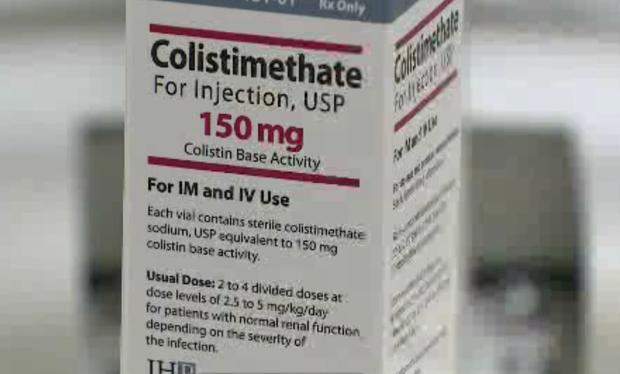CDC: 1st U.S. Case Of Superbug Resistant To Last-Resort Antibiotic
ORANGE (CBSLA.com/AP) — For the first time, a patient in the United States has been infected with a bacteria resistant to an antibiotic used as a last-resort treatment, scientists said Thursday.
"It is the end of the road for antibiotics unless we act urgently," Tom Frieden, director of the Centers for Disease Control and Prevention, said during an appearance in Washington.
The 49-year-old patient in Pennsylvania has recovered. It is unclear how she contracted the superbug, which can kill up to half of those infected, according to health officials.
The CDC and Pennsylvania health officials are trying to figure out how she might have picked up the strain. The woman had not traveled outside of the country recently, officials said.
Now, they fear that if the resistance spreads to other bacteria, the country may soon see supergerms impervious to all known antibiotics.
"May be it's already here. It may it's already spread. She might just be the first case we know about," said Ray Casciari at St. Joseph Hospital in Orange. "The problem is we really have to way to treat that person. The bigger problem is how do you prevent that particular bacteria from spreading to larger the population."
Other countries have already seen multi-drug resistant superbugs that no antibiotic can fight. So far, the United States has not. But this sets the stage for that development, CDC officials said.
The woman had gone to a military clinic in Pennsylvania last month and was treated for a urinary tract infection. Initial tests found she was infected with E. coli bacteria, a common variety of germ seen in the gut that often makes its way to the bladder.
But the tests showed this E. coli was resistant to antibiotics commonly used first for such infections. She was successfully treated with another kind of antibiotic.
Further testing completed in the last week confirmed that the E. coli was carrying a gene resistant to Colistin.
Colistin is an old antibiotic. By the 1970s, doctors had mostly stopped using it because of its harsh side effects. But it was brought back as other antibiotics began losing their effectiveness.
It's used against hard-to-treat bacteria that resist one of the last lines of defense, antibiotics called carbapenems. If those germs pick up the Colistin-resistance gene, doctors may be out of treatment options, health officials say.
"With all the traveling the world today, infections spread more rapidly. That's why they [CDC] are trying to spread the alarm that look - We've got to really start controlling how we use antibiotics, and we've got to be alert for these supgerbugs because there's no way to treat them," Casciari noted.
"This is another piece of a really nasty puzzle that we didn't want to see here," said Dr. Beth Bell, who oversees CDC's emerging infectious diseases programs.
The Colistin-resistant gene has been seen in animals and people in China, Europe and Canada.
Federal officials said Thursday that colistin-resistant E. coli has also been found in a pig in the United States, but there was nothing to link the finding to the Pennsylvania case.
Researchers at Walter Reed National Military Medical Center, who did the confirmatory tests, reported on the Pennsylvania case Thursday in a journal of the American Society of Microbiology.
(© Copyright 2015 The Associated Press. All Rights Reserved. This material may not be published, rewritten or redistributed.)




